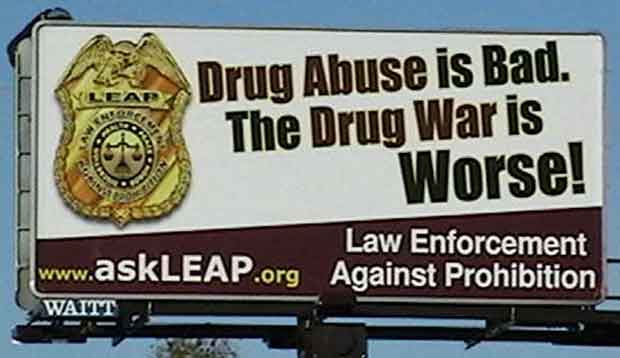WASHINGTON – Today a comprehensive bipartisan medical marijuana legalization bill was introduced to the House of Representatives. The bill serves as a companion to the Compassionate Access, Research Expansion, and Respect States (CARERS) Act, which would allow states to set their own medical marijuana policies without fear of federal prosecution. Senators Cory Booker (D-NJ), Rand Paul (R-KY), and Kirsten Gillibrand (D-NY) originally introduced the CARERS Act to the Senate earlier this month. Senators Dean Heller (R-NV) and Barbara Boxer (D-CA) co-sponsored the bill most recently. Reps. Steve Cohen (D-TN) and Don Young (R-AK) introduced today’s companion bill, which marks yet another significant leap of progress in bipartisan support for compassionate medical marijuana legislation.
“Police have as much business telling patients whether they should use medical marijuana as they do performing eye surgery – and with a similar rate of success,” said Maj. Neill Franklin (Ret.), executive director of Law Enforcement Against Prohibition, a criminal justice group opposed to the drug war. “When you treat a health problem like a matter for law enforcement, you only endanger the patient, who has no assurance of the quality or purity of what he’s consuming and must enter the illegal market to obtain it, and undermine respect for and effectiveness of law enforcement in our society.”
The CARERS Act would foremost allow states to decide their own regulatory policies. It would also reschedule marijuana from the federal scheduling category I to II, which unlike Schedule I, recognizes medical efficacy and allows more extensive research for drugs within that schedule, though it is still very restrictive. If passed, the bill would also permit interstate commerce of CBD (cannabidiol) products. CBD is a non-psychoactive seizure suppressant found in marijuana that has shown to be effective in reducing the severity and intensity of seizures, particularly in pediatric epileptic patients.
The bill would also allow banks to work with the legal marijuana industry without fear of prosecution. Currently, state-legal marijuana businesses and any banks that work with them might be charged with violating federal marijuana prohibition laws, and could be accused of laundering money for a criminal organization. The CARERS Act would also allow doctors within the Department of Veterans Affairs network to recommend marijuana to their patients, many of whom suffer from post-traumatic stress disorder (PTSD), which many believe can be alleviated by marijuana. Finally, the bill would also expand permissions for marijuana to be researched more thoroughly. What little research has been conducted domestically – and significant anecdotal evidence – both clearly support the efficacy of marijuana as a medicine, but obstacles to research have remained a problem for scientists to accurately measure marijuana’s effectiveness in treating specific conditions in controlled settings. The National Institute on Drug Abuse is the only institution presently permitted to research marijuana.
“No one should ever have to be considered a criminal to get medicine they need,” said Major Franklin. “There are many patients who need medicine who are foregoing their preferred treatment for fear of arrest. This is a public health problem that affects people from across the political spectrum. Prioritizing proper health care for the sick and disabled is not a partisan issue; it’s a question of basic human rights.”
Last year, President Obama signed into law the federal “Cromnibus” spending bill, which includes a provision that prevents the Department of Justice from using its money to create barriers for medical marijuana laws and legally operating dispensaries in those states. Twenty three states and the District of Columbia all have some degree of medical marijuana access, and many more state legislatures are considering such measures as well.
Law Enforcement Against Prohibition is committed to ending decades of failed policy that have fueled dangerous underground markets and gang violence, fostered corruption and racism, and largely ignored the public health crisis of addiction. The drug war has cost more than one trillion dollars and has distracted the penal system’s attention away from far more important crimes.







